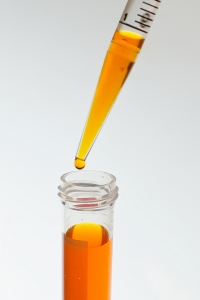Is It Time to Test Your Well Water?
Many homeowners with a water supply fed from a privately owned well are concerned about whether the water is free from potentially microbiological or chemical health-compromising contaminants. However, a great number of consumers fail to recognize the potential damage to their homes caused by seemingly harmless water. Certain contaminants such as calcium and magnesium are relatively safe in drinking water, unless in very high concentrations, but aside from a slightly unpalatable taste, homeowners are often unaware of the damage this is causing to your home.
Hard water is the term used for water which has a high mineral content. This is typically calcium and magnesium, but it may also include other dissolved compounds including sulfates or bicarbonates. The calcium is usually present as a result of chalk, or limestone or calcium sulfate in the rock that water travels through in underground aquifers. The main source of magnesium particles in water is dolomite. Generally, hard water is not harmful, but it can have undesirable effects on home fixtures, appliances (water heaters, dishwashers, washing machines etc.)
The Effects of Hard Water:
Although hard water is not generally considered harmful to human health, it can have very detrimental effects to your appliances and plumbing. Hard water can also interfere with a number of domestic tasks from personal grooming and bathing to dishwashing and laundering. You may notice that hair looks dull and feels sticky after washing, or your soap or shower gel fails to foam up properly. You may find that your glasses and dishes look spotty and your clothes feel scratchy and look dingy after they have been laundered. You may even notice a film on glass surfaces such as shower screens or bathroom fittings.
While these effects are unpleasant and inconvenient, they are an indication of potentially more serious problems occurring. Hard water can cause mineral deposits to accumulate inside your appliances. This may appear as lime scale and can restrict the flow of water. This can reduce the efficiency of your appliances and place additional strain on the unit, decreasing its potential lifespan or increasing the risk of breakdown.
There is also a risk from hard water to your pipes and plumbing. The increased production of soap scum as a result of the reaction between the hard water and soaps together with accumulated minerals can increase the risk of clogged pipes. Hair and other debris can become stuck to the sticky soap scum and block the pipe, increasing the risk of flooding.
The main concern for plumbing is that the accumulated minerals can increase the strain on the pipes, which may eventually require replacement. Additionally, calcium or magnesium deposits can build up in your (in US English it’s a water heater) causing it to become damaged and break down or fail. This could mean a very costly repair or a total water heater replacement, which is a major investment for your home.
Most consumers don’t even realize that they have hard water, especially since the EPA guidelines for water contaminants do not apply to privately owned wells. This means that the responsibility for testing the well water falls to the owner. So, don’t wait until you notice a change in the appearance or taste of your water, have it checked for hardness levels, as your water may be silently damaging your home at this very moment.
About The Author:
Greg Scott is President of Valparaiso based Miracle/EcoWater Systems, the premier water conditioning company in Northwest Indiana serving the Lake, Porter and LaPorte County areas. A 3rd generation water treatment professional, Greg grew up in the family owned business started by his grandfather in the late fifties. He has made water treatment his life and under his direction and high-standards, the company’s water treatment experience, knowledge, and products are unrivaled in region.

